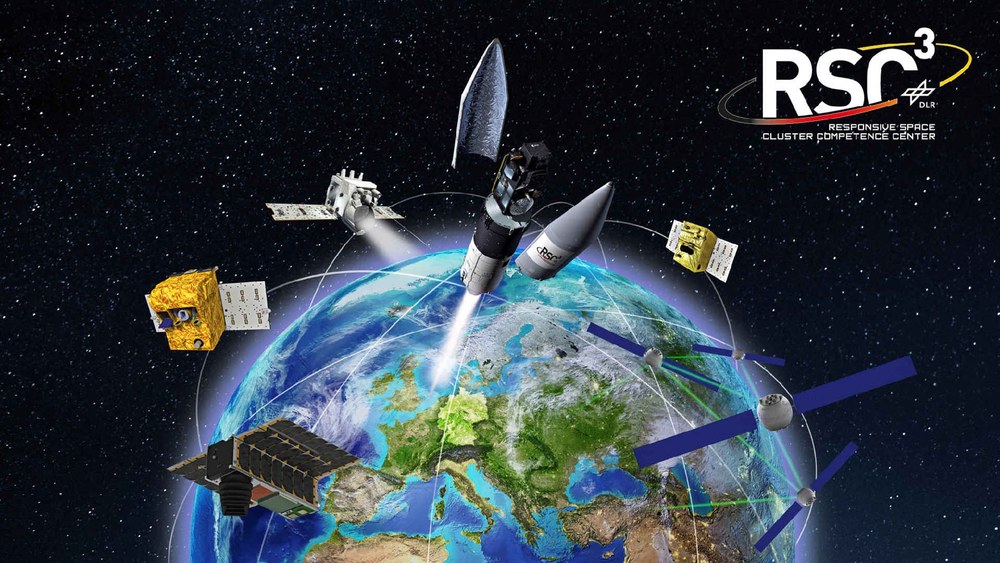Network for responsive satellite deployment

- Technical capabilities are necessary to protect critical infrastructure in space.
- It should be possible for new satellites to be placed in orbit and made operational within a short period of time.
- Focus: Spaceflight, security
The security and functionality of a modern information society depend on unhindered access to space-based information and communications channels.
Technical capabilities are needed to protect, repair, augment or expand critical infrastructure in space. The goal is to put new satellites in orbit and make them operational within a few hours or days. In the international military context, these capabilities are referred to as 'Responsive Space Capability'.
Under the leadership of the German Aerospace Center (Deutsches Zentrum für Luft- und Raumfahrt; DLR), 39 European institutions and companies from 13 European Union states and Norway are now working together on a resilient and scalable network for the responsive deployment of satellites. The Responsive European Architecture for Space (REACTS) project is being funded by the European Commission with approximately 19 million euros.
In addition to the DLR Responsive Space Cluster Competence Center in Trauen and other DLR institutes and facilities, a number of external European companies and institutions are involved in REACTS.
DLR Responsive Space Cluster Competence Center
The DLR Responsive Space Cluster Competence Center (RSC3) at DLR's Trauen site was established with the aim of building up the necessary technology base in the context of Responsive Space and conducting technology demonstrations. In this process, technologies in the entire architecture, consisting of space, ground, launch and mission segments, are being investigated and further developed. The Competence Center works in close cooperation with DLR institutes and facilities as well as with end users and industry.
The National Symposium on Responsive Space, to which RSC3 had invited key players, was recently held at DLR. More than 100 participants exchanged views on the topic of Responsive Space and learned about current projects.
Security and defence research at DLR
Security is one of the basic needs of every human being. It is also one of the most important challenges for the networked, globalised society and economy of the present and the future. DLR's security programme brings together research and development activities from the fields of aeronautics, space, energy and transport where they are relevant to defence and security, and plans and manages them in coordination with partners in government, scientific research and industry.
